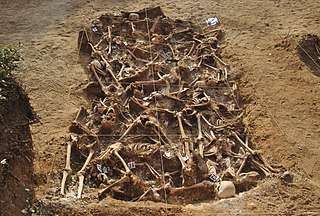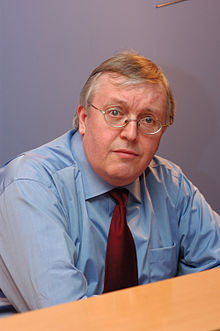
Lluís Companys i Jover was a Catalan politician who served as president of Catalonia from 1934 and during the Spanish Civil War.
Straperlo was a scheme which originated in the Netherlands in the 1930s and was then introduced in Spain. In essence it was a fraudulent roulette which could be controlled electrically with the push of a button. The ensuing scandal was one of the several causes of the fall of the Republican government and the polarization of the parliament, which finally led to the Spanish Civil War (1936–1939).

Enric Valor i Vives was a Valencian narrator and grammarian who made one of the most important contributions to the re-collection and recovery of Valencian lexicography and its standardization in the Valencian Country, Spain.

The Spanish Republic, commonly known as the Second Spanish Republic, was the form of government in Spain from 1931 to 1939. The Republic was proclaimed on 14 April 1931 after the deposition of King Alfonso XIII. It was dissolved on 1 April 1939 after surrendering in the Spanish Civil War to the Nationalists led by General Francisco Franco.

Ricardo Luis Lorenzetti is an Argentine judge graduated from the National University of the Littoral, Argentina, with a long national and international career. He used to be Chief Justice of the Supreme Court of Argentina (2007–2018), proposed by President Néstor Kirchner and approved by the Senate, assuming his position on December 12, 2004, covering the vacancy caused by the resignation of Justice Adolfo Vázquez. On November 7, 2006, he was appointed Chief Justice, officiated as of January 1, 2007. Currently, he is one of the five Justices of the Supreme Court. He was President of the Commission for the preparation of the Parliamentary Act to reform, update and unify the Civil and Commercial Codes of the Argentine Nation, Presidential Decree 191/2011.

The War in the North was the campaign of the Spanish Civil War in which the Nationalist forces defeated and occupied the parts of northern Spain that had remained loyal to the Republican government.

In the history of Spain, the White Terror describes the political repression, including executions and rapes, which were carried out by the Nationalist faction during the Spanish Civil War (1936–1939), as well as during the following years of the regime of General Francisco Franco. In the 1936–1975 period, Francoist Spain had many officially designated enemies: Loyalists to the Second Spanish Republic (1931–1939), Liberals, socialists of different stripes, Protestants, intellectuals, homosexuals, Freemasons, Romanis, Jews, blacks, immigrants, Basque, Catalan, Andalusian and Galician nationalists.

The campaign of Gipuzkoa was part of the Spanish Civil War, where the Nationalist Army conquered the northern province of Gipuzkoa, held by the Republic.

The Battle of Irún was the critical battle of the Campaign of Gipuzkoa prior to the War in the North, during the Spanish Civil War. The Nationalist Army, under Alfonso Beorlegui, captured the city of Irún cutting off the northern provinces of Gipuzkoa, Biscay, Santander, and Asturias from their source of arms and support in France.
Unión Militar Española was a pro-fascist secret society of officers of the Spanish Republican Armed Forces involved in a conspiracy to bring about the restoration of the monarchy during the 1930s. The majority of members of this organization became part of the nationalist forces during the Spanish Civil War.

Antonio Vallejo-Nájera (1889–1960) was a Spanish psychiatrist. He was interested in eugenics and proposed a link between Marxism and intellectual disability. His ideas led to the thefts of many Spanish newborns and young children from their left-wing parents. As many as 30,000 children were taken from socialist families and placed with fascist families. Vallejo-Nájera was rewarded for his assistance during the Spanish Civil War and he became a leading figure in Spanish psychiatry.

The Convoy de la Victoria was a Spanish naval battle on 5 August 1936 in the Strait of Gibraltar during the Spanish Civil War, between the escort of a Nationalist convoy and the Republican Navy destroyer Alcalá Galiano.

Gonzalo de Aguilera Munro, 11th Conde de Alba de Yeltes was a Spanish aristocrat and military officer who served with the nationalist faction of the Spanish Army during the Spanish Civil War. He served as the press officer for General Francisco Franco and General Emilio Mola. He inherited the title of El XI Conde de Alba de Yeltes in 1919.

Gonzalo Queipo de Llano y Sierra was a Spanish Army general. He distinguished himself quickly in his career, fighting in Cuba and Morocco, later becoming outspoken about military and political figures which led to his imprisonment, removal from posts and involvement in plots against Spanish governments. He was a Nationalist military leader during the Spanish Civil War under Francisco Franco, gaining the soubriquet "El general de la radio" ["radio" or "broadcasting general" in English media] for his threats and explicitness on air. Under his control of southern Spain, tens of thousands of Spaniards perished as part of the Nationalists' White Terror. In his post-war roles he was effectively sidelined by Franco.

The Jewish Archive was the name given to a collection of documents compiled by the regime of Francisco Franco in Spain during the Second World War. In accordance with instructions of the Directorate of General Security the provincial governors of Spain assembled records of all Jews who lived in Spain, whether or not they were Spanish. Jorge Martínez Reverte has suggested that the resulting list, which recorded 6,000 Jews living in Spain, was handed to Heinrich Himmler's SS in 1941 and was included in Adolf Eichmann's Jewish Population Census, tabled at the Wannsee Conference, chaired by Reinhard Heydrich, in January 1942.

Jesús Martín-Barbero was a Spanish-Colombian communication scientist.

The Revolution of 1934, also known as the Revolution of October 1934 or the Revolutionary General Strike of 1934, was a revolutionary strike movement that took place between 5 and 19 October 1934, during the black biennium of the Second Spanish Republic. The revolts were triggered by the entry of the conservative Spanish Confederation of the Autonomous Right (CEDA) into the Spanish government. Most of the events occurred in Catalonia and Asturias and were supported by many Spanish Socialist Workers' Party (PSOE) and General Union of Workers (UGT) members, notably Largo Caballero, as well as members of the Confederación Nacional del Trabajo (CNT). Historians have argued that the incident sharpened antagonism between the political Right and Left in Spain and was part of the reason for the later Spanish Civil War. Around 2,000 people were killed during the uprising, which was repressed by Spanish government forces.

Miguel Herrero y Rodríguez de Miñón is a Spanish jurist and politician. A member of the Union of the Democratic Centre until 1982, then of People's Alliance and its successor, the People's Party, he is one of the "Fathers of the Constitution", the seven legislators who participating in the draft of the Spanish constitutional text passed in 1978.

Andrés Saliquet Zumeta, Marquis of Saliquet was a Spanish soldier who participated in the failed military coup against the Second Republic, which gave rise to the Spanish Civil War. During the war he took charge of the Army of the center, a unit that contained troops of the Nationalist faction from the Tagus River to Madrid, Guadarrama and the Universal Mountains.

The Universidad Nacional del Altiplano de Puno is a public university located in the city of Puno, Peru.


















